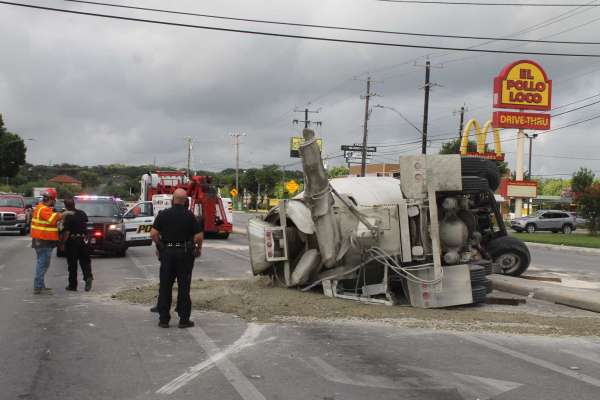
Medical bills are usually one of the largest components of a truck crash claim. Frequently, these wrecks cause catastrophic injuries, such as spinal cord injuries. The medical expenses of such wounds may exceed $4 million over the course of a lifetime.
To provide short-term relief in these situations, attorneys usually send letters of protection to medical providers. Since these letters guarantee payment when the case is resolved, these providers charge nothing upfront for their services. So, injured victims do not need to worry as much about money. They can concentrate on getting better.
However, these bills must be paid eventually. Therefore, a Brainerd attorney must work diligently to settle the case as quickly as possible, and on the best possible terms.
Determining Negligence
Most truck crash claims involve either ordinary negligence or negligence per se. Fatigued driving, which is quite common in such matters, is a good illustration of the difference between the two.
Drowsy driving is a problem for both economic and medical reasons. Most transportation companies pay drivers by the load and not by the mile. So, to make money, they must stay behind the wheel as long as possible. Furthermore, since they sit most of the day, many truck drivers struggle with sleep apnea. People with this medical condition get little or no deep, restorative sleep. They basically nap all night.
Ordinary negligence is basically a lack of care. Drivers must be well-rested, sober, and focus on the road. In an ordinary negligence claim, the victim/plaintiff must establish a lack of care by a preponderance of the evidence (more likely than not). Some evidence in drowsy driver claims includes:
- Erratic driving prior to the crash,
- Time of night or day,
- Statements the tortfeasor (negligent driver) gave to emergency responders, and
- Physical symptoms, like bloodshot eyes.
In Minnesota, commercial drivers often must abide by a higher standard of care than noncommercial drivers. Therefore, it might be easier to establish ordinary negligence in truck wrecks.
Fatigued truck driver crashes might also involve the negligence per se rule. These claims do not require circumstantial evidence. Tortfeasors are often negligent as a matter of law if:
- They violated a safety law, and
- That violation substantially caused injury.
In this context, the relevant safety laws are the federal and state HOS (Hours of Service) rules. Truck drivers must adhere to strict schedules with regard to driving time and rest periods. If the tortfeasor violated an HOS rule, it does not matter how well-rested s/he was. Liability might still attach.
Brainerd Attorneys and Liability Determinations
This liability usually extends to both economic losses, such as medical bills, and noneconomic losses, such as pain and suffering. These claims are a bit complex. Minnesota has a partial no-fault insurance law which might limit damages in some cases.
There are other complexities as well. The respondeat superior rule usually applies in truck crash claims. Employers are liable for the negligent acts of their employees if:
- Employee: In a truck crash, an employee is not just a worker who is in an office from 9 to 5. Employees include independent contractors, owner-operators, and even unpaid volunteers. Employers control these individuals, at least to some extent, such as work hours.
- Scope of Employment: Minnesota law also broadly defines this phrase. Any act which benefits the employer in any way is within the scope of employment. That definition includes things like driving an empty truck to a warehouse.
Respondeat superior is especially important in light of the aforementioned high medical bills. Individual tortfeasors usually do not have enough insurance coverage to make good on these losses.
Pretrial Settlement Negotiations
Once medical treatment is at least substantially complete, Brainerd attorneys open settlement negotiations with the insurance company. It is important not to settle a claim too early. If that happens, the victim may not receive enough compensation to fully account for all losses.
If liability is relatively certain, insurance companies usually have a duty to settle the claim within a few weeks. But in most cases, there is at least some question as to liability.
Contributory negligence often delays settlement. This doctrine shifts blame for the accident from the tortfeasor to the victim. For example, the tortfeasor may have been drowsy, but the victim might have been speeding. Therefore, they might both be partially at fault.
Mediation
If the two sides cannot reach an early agreement, a Brainerd attorney must file legal paperwork to protect the victim’s rights. At that point, most Crow Wing County judges refer these claims to mediation.
During mediation, a neutral third party, who is usually an unaffiliated Brainerd attorney, works to forge a settlement between the victim and insurance company. This work usually involves reviewing the case file, listening to brief opening arguments, and then conveying settlement offers back and forth between the two sides.
This process usually works. If both sides negotiate in good faith, which means they are willing to make sacrifices to get a deal done, mediation is successful about 75 percent of the time.
Connect with a Diligent Lawyer
Truck crash claims often take some time to settle. For a free consultation with an experienced Brainerd attorney, contact Carlson & Jones, P.A. We do not charge upfront legal fees in negligence cases.

